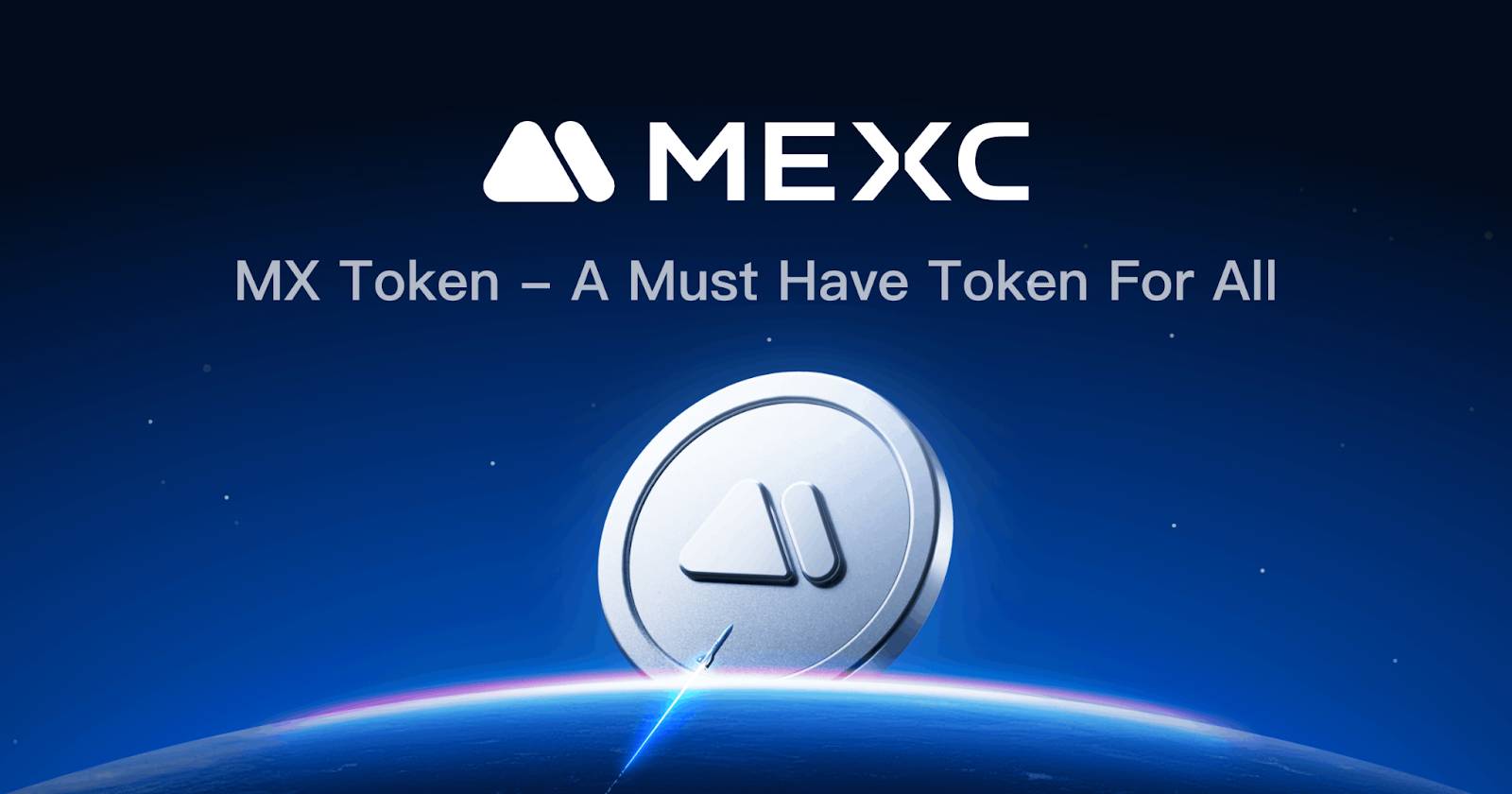
6 minute read
MEXC vs Binance Comparison: Which is better?
from MEXC
by Exness_India
When it comes to choosing a cryptocurrency exchange, MEXC and Binance are two prominent names that often come up. Each platform has its own strengths, weaknesses, and target user base. But if you’re wondering which exchange is better: MEXC or Binance, the answer depends on your trading needs, priorities, and region. Let’s dive straight into the comparison and provide a clear verdict based on key factors like security, fees, features, and ease of use.

✅ Trade with MEXC now: Open An Account 👈
Binance Is Better for Most Traders, But MEXC Has Unique Advantages
Binance is the world’s largest crypto exchange by trading volume and user base. It offers a robust ecosystem, deep liquidity, a wide range of features, and advanced trading tools. For most users, especially those looking for reliability, broad support, and regulatory compliance, Binance is the superior choice.
However, MEXC appeals to a different audience. It is known for listing new and low-cap tokens faster, offering high leverage futures trading, and being more flexible on KYC (Know Your Customer) requirements. If you’re a high-risk trader, interested in altcoins or anonymous trading, MEXC could be a better fit.
MEXC’s Strength: Fast Listings and No-KYC Trading
One of the biggest advantages of MEXC is its aggressive token listing strategy. It frequently lists new, low-cap cryptocurrencies that are not yet available on Binance. For altcoin hunters and early adopters, this is a major benefit.
Another standout feature is the lack of mandatory KYC for most functions. You can deposit, trade, and withdraw up to a certain amount without verifying your identity. This offers privacy-focused traders a strong reason to prefer MEXC.
Additionally, MEXC offers very high leverage on futures trading (up to 200x for some pairs), which is appealing to risk-tolerant users. Combined with lower entry barriers and regular trading competitions, MEXC can be attractive to experienced traders looking for volatility and opportunities.
Binance’s Strength: Regulation, Security, and Ecosystem
In contrast, Binance is better suited for traders who prioritize safety, support, and ecosystem integration. The platform is fully regulated in multiple jurisdictions, including the EU, Australia, and Dubai. It adheres to strict KYC/AML policies and implements industry-leading security practices like SAFU insurance fund and real-time proof of reserves.
Binance offers an extensive product suite, including spot and futures trading, staking, savings, launchpad, NFT marketplace, and even its own blockchain (BNB Chain). The Binance Earn program lets users grow their crypto holdings through various yield-generating options. Moreover, Binance supports over 500 cryptocurrencies and provides deep liquidity, ensuring minimal slippage even with large orders.
It also offers a powerful mobile app and desktop platform with advanced charting tools, indicators, and APIs for developers. Binance is the go-to platform for institutions and professional traders thanks to its robust infrastructure and unmatched liquidity.

✅ Trade with MEXC now: Open An Account 👈
User Experience: Binance Offers More Polish
When it comes to user interface and experience, Binance offers a smoother and more intuitive platform. The layout is well-organized, and the trading interface can be customized for beginners or advanced users.
MEXC’s interface is functional but less polished. It may feel cluttered or confusing for beginners. While experienced traders may not mind, first-time users often find Binance easier to navigate.
Additionally, Binance provides 24/7 multilingual support, extensive educational resources through Binance Academy, and frequent updates to enhance the user experience. MEXC has decent support but still lags behind Binance in documentation, tutorials, and global customer service.
Fees: MEXC Can Be Cheaper for Some Trades
Trading fees are crucial for active users. MEXC and Binance both offer competitive rates, but their structures differ slightly.
Binance typically charges 0.1% for spot trades, which can be reduced to 0.075% when using BNB for fee payments. Futures trading fees range from 0.02% maker / 0.04% taker, and VIP users enjoy deeper discounts.
MEXC often runs zero-fee promotions on selected spot and futures pairs. Even outside promos, its maker/taker fees are competitive, especially for futures traders. However, MEXC doesn’t have its own native token like BNB for fee discounts, although users can still participate in promotional offers.
Overall, MEXC may be cheaper for high-frequency futures traders, while Binance remains cost-effective for long-term holders and large-volume traders using BNB.
Liquidity and Volume: Binance Is the Undisputed Leader
When it comes to trading volume and liquidity, Binance is unmatched. As the world’s largest exchange, it handles billions in daily volume, making it the best choice for institutions or traders moving large amounts.
MEXC has decent liquidity, especially for spot and futures pairs with lower market caps. However, for major coins like BTC, ETH, or SOL, Binance provides far better execution, lower spreads, and less slippage.
This makes Binance far more suitable for professional or high-volume traders, while MEXC may be ideal for small traders looking for newly launched tokens.
Security: Binance Offers Better Transparency
Security is a non-negotiable aspect of any exchange, and Binance leads in this area. The platform has recovered from past breaches and has since implemented strict security protocols, cold wallet storage, multi-signature access, and insurance through the SAFU fund.
MEXC has not suffered any major hacks, but it does not offer the same level of transparency as Binance. For example, Binance publishes Proof of Reserves, whereas MEXC does not consistently disclose such details.
If you value transparency and robust protection of funds, Binance is the safer choice.
Regulatory Compliance: Binance Plays by the Rules
Another area where Binance pulls ahead is regulatory compliance. Binance operates under strict licenses in several countries and works with regulators globally. This helps users trust the platform and ensures it can operate long-term without disruption.
MEXC, on the other hand, is less compliant in comparison. It often avoids strict regulatory markets and operates in more permissive jurisdictions. While this allows flexibility (such as no-KYC trading), it may raise concerns about long-term stability and legality in certain countries.
Which Should You Choose?
Choose Binance if you want:
A regulated, globally recognized exchange
High liquidity and tight spreads
Access to over 500 tokens, including major assets
Long-term safety, compliance, and advanced features
Professional tools and institutional-grade infrastructure
Choose MEXC if you want:
Early access to new and low-cap tokens
Anonymous trading without mandatory KYC
Higher leverage for futures trading
Frequent promotions and trading competitions
A platform for high-risk, high-reward strategies
Final Verdict: Binance Is Better for Most, but MEXC Is Ideal for Niche Traders
In summary, Binance is the better choice for the majority of crypto users, especially if you prioritize regulation, security, liquidity, and a complete crypto ecosystem. Its superior infrastructure, user experience, and trust factor make it the default recommendation.
However, MEXC carves out its space in the altcoin and degen trading niche. If you’re seeking access to new tokens before they go mainstream, want high leverage, or prefer trading without verification, MEXC can be a powerful tool—especially when used responsibly.
Ultimately, both platforms can complement each other. You can use Binance for your main holdings and ecosystem features, while keeping a smaller MEXC account for high-risk plays or early-stage coins.
✅ Trade with MEXC now: Open An Account 👈
Read more:








